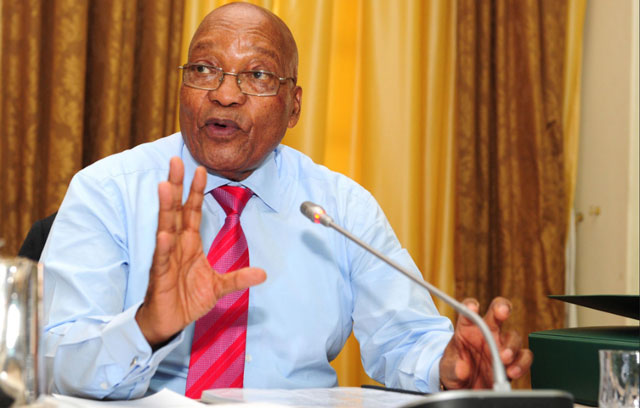
Johannesburg, South Africa | AFP | Former South African president Jacob Zuma will face prosecution on corruption charges that haunted much of his term in office, the country’s chief prosecutor said Friday.
“After consideration of the matter there are reasonable prospects of a successful prosecution of Mr Zuma,” said National Director of Public Prosecutions Shaun Abrahams at a media briefing in Pretoria.
“A trial court would be the most appropriate (venue) for the ventilation of the issues.”
The former president could now appeal the ruling on a number of grounds and argue that the decision is illegitimate as Abrahams’ own position is uncertain.
In December, the High Court in Pretoria ordered then-deputy president Cyril Ramaphosa to replace Abrahams, ruling that Zuma’s original decision to appoint him was “null and void” because he was “conflicted” at the time.
“Justice must not only be done but must also be seen to be done — I am mindful that everyone is equal before the law,” added Abrahams, who noted that “Mr Zuma disputes all allegations against him”.
– ‘Charges hanging over him’ –
“I don’t think Zuma can stay out of court — there’s too many charges hanging over him,” independent political analyst and author Nomavenda Mathiane told AFP ahead of the announcement.
Last year, a court ruled against a decision by prosecutors in 2009 to drop the corruption charges against Zuma just months before he became president.
Zuma’s criminal charges relate to multi-billion-dollar arms procurement deals struck by the government in the late 1990s and from which he is accused of profiting corruptly to the tune of four million rands ($345,000, 280,000 euros).
At the time, state prosecutors justified dropping the case by saying that tapped phone calls between officials in then-president Thabo Mbeki’s administration showed undue interference.
Zuma and other officials were accused of taking kickbacks from the $5 billion (4.2 billion euros) purchase of fighter jets, patrol boats and other arms manufactured by five European firms, including British military equipment maker BAE Systems and French company Thales.
In 2005 Zuma’s former financial adviser Schabir Shaik was convicted for facilitating bribes over the contracts and sentenced to 15 years in prison. He was later released on medical parole.
Zuma resigned as president last month after the ruling African National Congress (ANC) party threatened to remove him from offic.
In addition to the corruption scandals that dogged his time in office, Zuma was under fire for his handling of the economy, which has been battered by falling economic growth and record unemployment.
The opposition Democratic Alliance party has campaigned since 2009 to reactivate the charges relating to the military contracts. Zuma insists he is innocent.
His successor President Cyril Ramaphosa has vowed to tackle corruption, admitting it was a major problem in the government
 The Independent Uganda: You get the Truth we Pay the Price
The Independent Uganda: You get the Truth we Pay the Price



